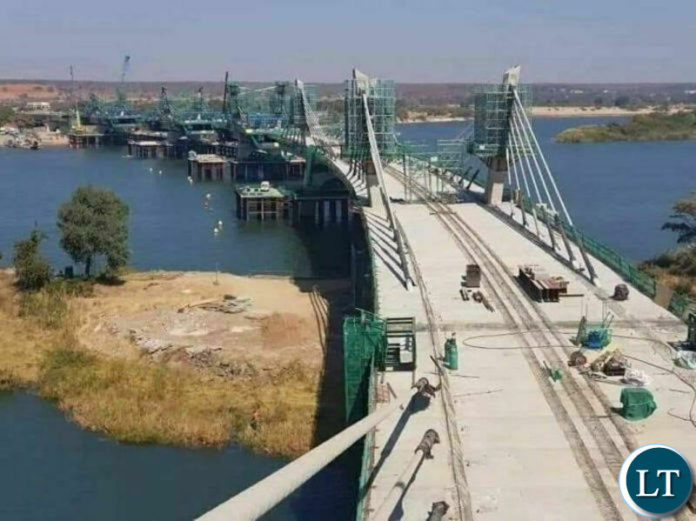SADC Trade Revolution: Zambia & Botswana Lead Kazungula Corridor Upgrade
Zambia and Botswana have agreed to accelerate the expansion of trade infrastructure at the Kazungula Bridge, a strategic gateway linking Southern Africa’s transport corridors. The decision follows high-level bilateral talks aimed at boosting cargo throughput, cutting delays, and unlocking new trade opportunities for both countries.
Transport and Logistics Minister Frank Tayali confirmed that the agreement will focus on upgrading customs systems, expanding parking facilities for heavy trucks, and introducing a joint border management framework. This, he said, is expected to reduce the average crossing time for freight from several days to just a few hours, a move that could save businesses millions in annual transport costs.
The Kazungula Bridge, completed in 2021, was built to ease congestion at border points and provide a faster, more reliable route for goods moving between Zambia, Botswana, and the broader Southern African region. However, trade volumes have exceeded initial forecasts, leading to capacity strains and calls from stakeholders for immediate improvements.
Tayali emphasised that the project will not only enhance Zambia’s competitiveness as a regional transit hub but also support domestic economic growth by facilitating quicker exports of agricultural produce, minerals, and manufactured goods. “Our farmers, miners, and industrialists will all benefit from faster, cheaper access to markets,” he said.
The minister noted that the upgrades are part of a broader government strategy to modernise transport infrastructure across Zambia, including planned investments in road rehabilitation, railway revival, and the digitisation of freight clearance processes. He added that strong collaboration with Botswana will ensure that operational standards at Kazungula meet international best practices.
Economic experts view the corridor’s expansion as essential to Zambia’s regional trade ambitions. They argue that the country’s geographic location offers a natural advantage in serving as a land-linked bridge between key markets in Southern and Central Africa, but this potential can only be realised with seamless border operations.
The two governments have also agreed to explore joint investment opportunities in logistics parks, warehousing, and value-added processing facilities near the border. Such initiatives could create jobs, attract private sector investment, and generate new streams of revenue for both countries.
Tayali assured the public that environmental considerations will be integrated into the expansion plans, with feasibility studies to assess potential impacts on the surrounding ecosystem and local communities. He further indicated that financing options, including public-private partnerships and concessional loans, are being considered to fund the upgrades without overburdening national budgets.
The announcement has been welcomed by trucking associations and freight forwarders, who say the reforms will resolve persistent bottlenecks that have undermined the efficiency of one of the region’s most important trade arteries. The timeline for the initial phase of works is expected to be confirmed in the coming months.



“upgrading customs systems, expanding parking facilities for heavy trucks, and introducing a joint border management framework”
This didn’t need the bridge to be functional for planning and construction. It should have been done as the bridge was being done.
African governments!
And Black South Africans attack people that look like them….black..how come we never see white South Africans complain about black immigrants….or attack African immigrants….as a matter of fact White South Africans create employment for black immigrants….
Comments are closed.